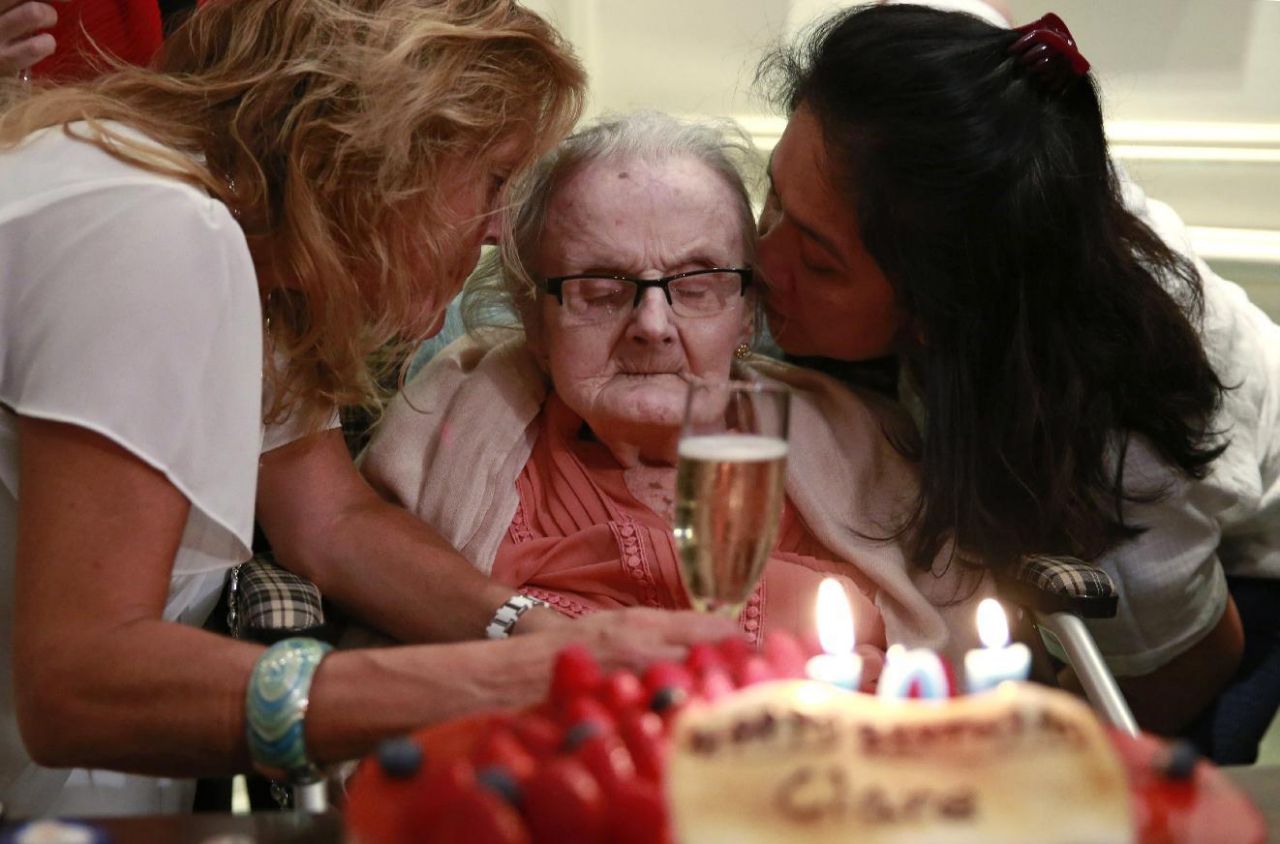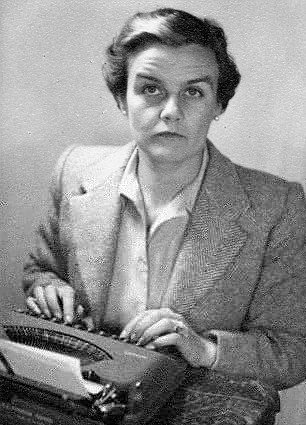The British Newspaper reporter who broke the news of World War ll, Clare Hollingworth has died at age 105.
Hollingworth, who was 27 when she broke the news, was born October 10, 1911, to a middle-class family in the village of Knighton in Leicestershire, England.
According to a report on BBC, her father ran a boot factory founded by her grandfather. She took brief courses in Croatian at Zagreb University, international relations in Switzerland and Slavonic studies in London. She worked as a secretary and then at a British newspaper’s refugee charity in Poland while writing occasional articles about the looming war in Europe. Friends influenced her decision to focus on journalism rather than politics.
The Daily Telegraph’s editor gave her a job as a stringer and sent her to Poland, partly because of her work with refugees in that country, according to her great-nephew Patrick Garrett.
During her five months with the charity, Hollingworth played an important role in helping an estimated 3,000 refugees trying to escape the Nazis flee to Britain by arranging visas for them, a little known fact that Garrett unearthed in research for his 2016 biography of his great-aunt, “Of Fortunes and War.”
Though she carved out a career in what was then a male-dominated field, Garrett said she looked back on her achievements matter-of-factly.
“She would never regard herself as a feminist,” said Garrett. Hollingworth hated when women were given special treatment because it made women a “hassle,” which made it harder for other female journalists trying to cover wars, Garrett said.
“She thought that everyone should be treated the same. She hated it when women wasted time on makeup or getting their hair done,” Garrett said.

 Clare
Clare
After the Polish invasion, Hollingworth covered the Romanian revolution and hostilities in North Africa. When Allied forces captured Tripoli in 1943, British Field Marshall Bernard Montgomery ordered her back to Cairo because he didn’t want women around. So she instead got herself accredited with U.S. forces in Algeria.
Later she reported on the fall of the Balkan states to communism, and on Cold War espionage, including the case of Kim Philby, a British journalist and Soviet double agent. Hollingworth wrote for many publications in her career, including the Economist, the Manchester Guardian and the Daily Express.
Hollingworth was close to danger for decades. In 1946, she was standing 300 yards (meters) from the King David Hotel in Jerusalem when it was destroyed by a bomb planted by militant Zionists that killed nearly 100 people.
While covering the Algerian war for independence in 1962, Hollingworth defied members of a French far-right group who rounded up foreign journalists and threatened some of them with execution.
“I was extremely annoyed at this treatment and I told their commander in French, ‘Go away at once, monsieur, or I will have to hit you over the head with my shoe, which is all I have.’”
The commander pushed her aside, grabbed another British journalist and dragged him out the front door of their hotel. Hollingworth led the other reporters outside in pursuit of their colleague, who was thrown to the ground. The gunmen released the safety catches on their guns and the reporters dived for cover, but they drove off without shooting.
Covering the Vietnam War, Hollingworth flew aboard U.S. military aircraft on supply runs and bombing missions.
Hollingworth became the Telegraph’s first resident China correspondent when the paper sent her to Beijing — then known as Peking — in 1973, a year after President Richard Nixon’s landmark visit that eventually led to formal ties between Washington and Beijing.
She moved to Hong Kong in 1981. She had intended to stay temporarily as she wrote a book about Mao Zedong, but decided to stay to watch the negotiations over Britain’s return of Hong Kong to China in 1997 and never left.
Hollingworth wrote articles for the International Herald Tribune and Asian Wall Street Journal well into her old age. She was known for visiting the Foreign Correspondent’s Club every day, where her domestic helpers read newspapers to her because of her failing eyesight and where friends and admirers helped her celebrate her 105th birthday with cake.







